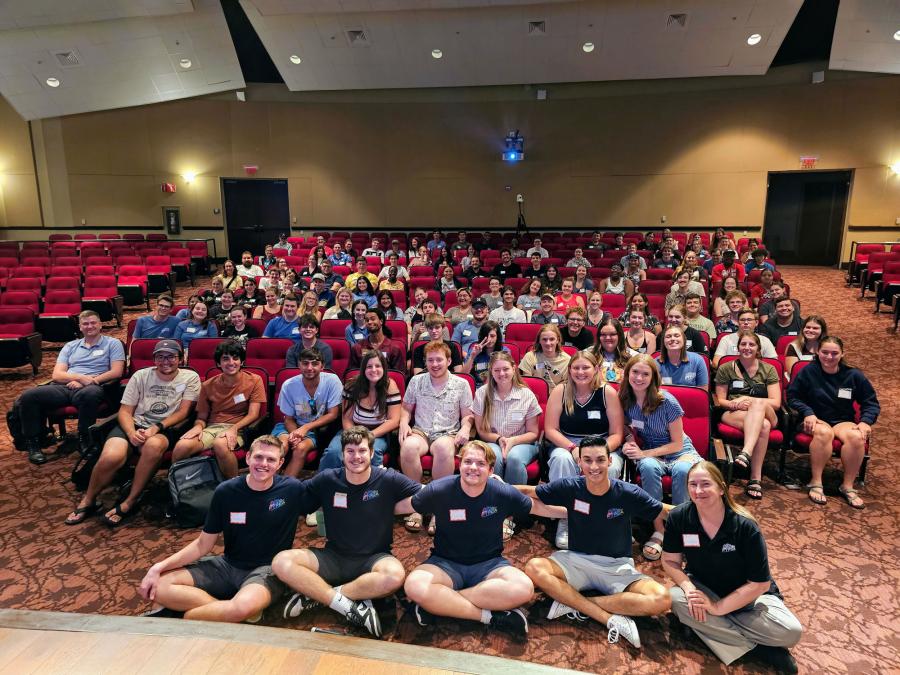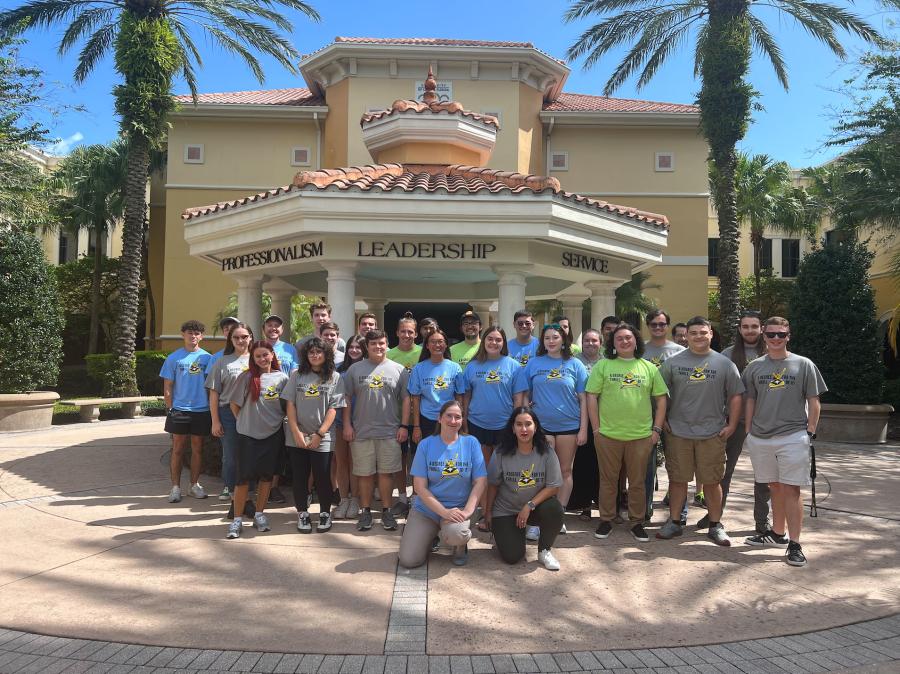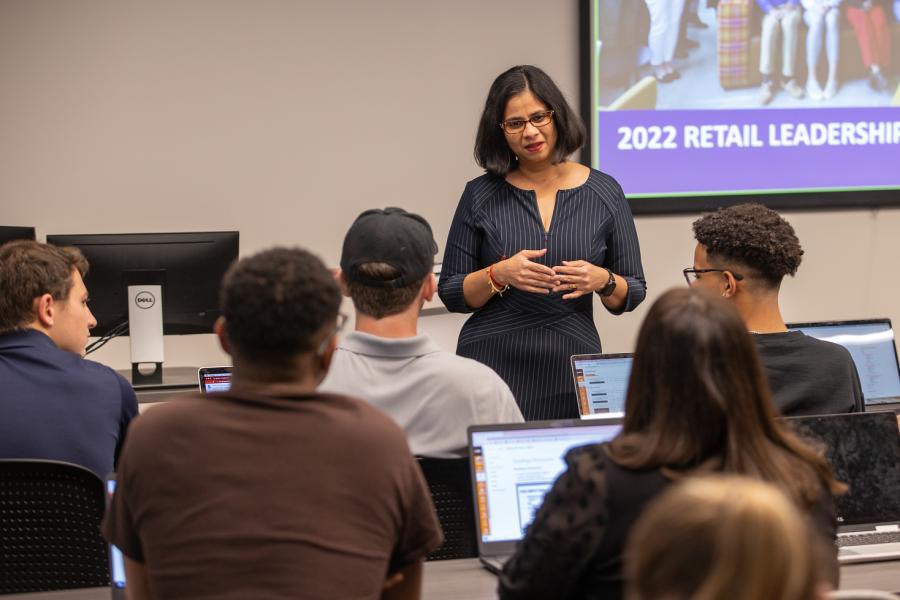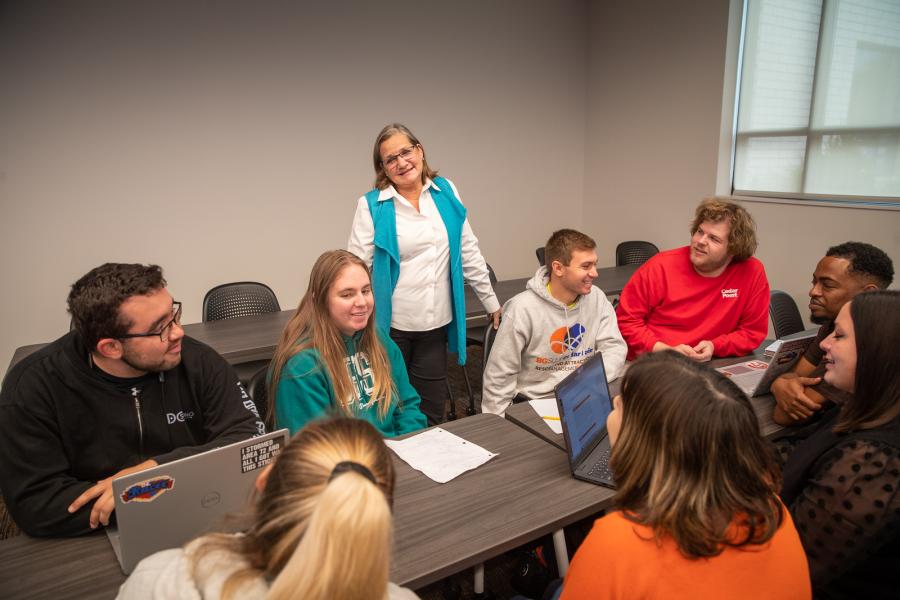The IAAPA Foundation provides scholarships to students pursuing a professional career in the global attractions industry. Learn more about our mission and donate today.
University programs in towns about 1,000 miles away from one another, plus others an ocean away share a unifying commonality: They’re dedicated to developing the attractions professionals of tomorrow.
In Orlando, the University of Central Florida offers a Bachelor of Science in Theme Park and Attraction Management. To the north, students can enroll in the Cedar Fair Resort and Attraction Management (RAAM) program at Bowling Green State University’s (BGSU) facility located in Sandusky, Ohio, across the bay from Cedar Point. The structure of the program at BGSU is unique, operating as a public-private partnership between the university and Cedar Fair (proper name of the operator as of press time).
The BGSU curriculum is a result of a collaboration between both partners. A signature feature of the partnership is two guaranteed, paid, and customizable co-ops at a Cedar Fair park for all RAAM students.
Far across the pond in the Netherlands, Breda University of Applied Sciences (BUas) offers the Attractions and Theme Parks Management program, which started 10 years ago as a cross-academic program in hospitality, leisure, and tourism. Today, the program combines topics such as experience design, storytelling, business management, operations, finance, marketing, and more—all with the goal of providing students the well-rounded education they need to succeed in the global attractions industry.
Getting Involved
Many individuals who are now members of the attractions industry, like Senior Lecturer of the Attractions and Theme Parks Management at Breda University Klaus Hoven, who found his way into the field serendipitously.
“By chance and by taking the opportunity, I got involved in the program,” he shares. “My passion is to create academic or learning programs that create opportunities for students to pursue their dreams.”
Carissa Baker never thought of attractions as a possible career. Her first job while attending high school was with Universal Studios Hollywood, which came about following a college scholarship the park awarded her.
“Many in the industry kind of fell into this work, entered through other professions, or joined because of family or proximity,” says Dr. Baker, who is currently assistant professor of Theme Park and Attraction Management at the University of Central Florida–Rosen College of Hospitality Management.
Rosen College’s curriculum is curated by several faculty members who either currently work in the industry or have done so previously. Other instructors are actively researching, engaging with, and contributing knowledge to the industry, she says.
The Bachelor of Science degree program at Rosen was forged gradually. The university began by offering coursework in the Theme Park and Attraction Management subject area in 2001. A certification in this area became available in 2020, while the full Bachelor of Science degree began in August 2023.
“We also have a constant dialogue with the industry and work to fill the ‘gaps’ they identify,” explains Baker. Not only do students learn what these gaps are while in the classroom, they also experience them in real life.
Internships and Co-Ops
Rosen College requires undergraduates to participate in two onsite internships. They can intern with operators local to Orlando, including Walt Disney World, Universal Orlando, SeaWorld Orlando, Busch Gardens Tampa Bay, FunSpot America, or Legoland Florida. Baker says some students venture beyond Florida to Dollywood, Hersheypark, Kennywood, and Silver Dollar City. Other internship possibilities include museums, escape rooms, or design firms and suppliers.
As a 2018 graduate of the Rosen program, Frank Hamedl interned at Universal Orlando Resort in two distinct roles. In the global standards and procedures department, he wrote documents for upcoming projects. In Hamedl’s second internship with Universal’s Event Operations Department, he assisted in management coverage for marquee events and parades, designed incentives to increase employee satisfaction and safety, and ran reports to ensure administrative tasks were completed.
Even though the Cedar Fair Resort and Attractions Management program at BGSU also requires field work, the school labels those requirements co-ops instead of internships. “A distinguishing feature of our co-ops is that we ask our students to experience other departments besides the one they’re academically focused on,” says Dr. Swathi Ravichandran, a professor and founding director for the Cedar Fair Resort and Attractions Management program at BGSU.
Joe Prentice, a graduate of the RAAM program, did his co-op experience in the games department at Cedar Point. He began as a base level associate and worked his way up to a team leader, then to an area supervisor. His duties included operating game locations, engaging with guests, and working with leadership to better understand the business and operations of the games department.
At Breda University of Applied Sciences, students participating in the Attractions and Theme Parks Management program take part in a 20-week international internship program.
“In 2024, our students can participate in the Disney International Programs in Orlando, in collaboration with Central Michigan University,” shares Hoven. “Other students intern in European theme parks, FECs, museums, or suppliers and theming agencies.”
Students are also given an annual opportunity for field study through a trip to discover attractions in a new country or market.
Benefits for Employees and Employers
Not only do graduates of these two college degree programs walk away with inside industry knowledge, but they acquire skills and talents other applicants might not have.
“In some courses, we offer two- or three-day boot camps to explore new topics and industry challenges,” shares Hoven of the efforts made to ensure Breda students are educated on pressing industry conversations. “For example, in marketing, we dive deeper into big data, dynamic pricing, and the challenges of artificial intelligence.”
“The benefits I gained were the networking experiences and knowledge from the specialized classes,” says Prentice, now games area manager at Cedar Point in Sandusky, Ohio. “Every day at work is different, and you don’t know what might happen.”
Specialized classes teach concepts and material that industry professionals take years to learn, Prentice says. There was an entire class based on lines, crowd crushing, and how to handle a mass exit.
“My time spent at [Rosen] forged lifelong connections with industry peers, mentors, friends, and colleagues that I still lean on today,” says Kevin Joralemon, senior analyst, global strategy at Universal Destinations and Experiences in Orlando. “Networking, exposure, and the required industry participation sets the Rosen College apart.”
Graduates benefit by investing in themselves through advanced education and higher lifetime earnings, Ravichandran says. Filled with knowledge of the industry, graduates can kick-start their attraction careers, but the employers who hire them also reap several perks.
“The feedback we receive from employers and industry partners is that BUas graduates in this program are trained as generalists—meaning that they have a broad understanding of attractions management and can easily make relations between design, development, operations, and marketing,” says Hoven.
“Our students understand what is happening in the industry,” says Ravichandran. “Our coursework involves collaborative projects, studying real-world problems and solving them, doing a safety and security audit, a table-scaping competition, and in general, how they can make things better.”
Recent graduates get up to speed quickly while on the job due to their robust educational background. They enter the job market with knowledge, skills, experience, and the ability to network, Baker believes. They develop networks among fellow students in peer organizations and through industry professionals that visit campus, site visits, and attendance at industry events.
Harnessing Passion
Almost since birth, Alex Gillman has had an affinity for roller coasters. That may not be the main reason he enrolled in the BGSU program, but it got him closer to working with thrill rides.
“I enrolled in the Resort and Attractions Management (RAAM) because of my passion for the hospitality and amusement park industries. I have a deep desire to help others and an interest in learning,” says Gillman, a 2022 graduate currently working as a guest services manager at Kalahari Resorts & Conventions in Sandusky. Upon graduation, he already had secured a full-time position as the area manager of the front office at Cedar Point’s historic Hotel Breakers.
You can’t teach passion, says Ravichandran. It’s a soft skill, but even though it can’t be taught, passion can be fostered in the right environment. That’s why RAAM gives its students access to people who are passionate about the industry through guest speakers, professors, and operators.
“Employers are clamoring for access to our students,” says Ravichandran. “So, we hold a one-day, RAAM-specific career fair in February. Now we’ve come full circle and have graduates coming to the fair to recruit for their company.”
While the pandemic led to a loss of talent because of retirement or structural changes, gaps must be filled. Baker says an educated workforce is an asset, especially in an industry that is continuing to expand and diversify its offerings. Leveraging versatile college graduates to take on the challenge might just be the answer.





